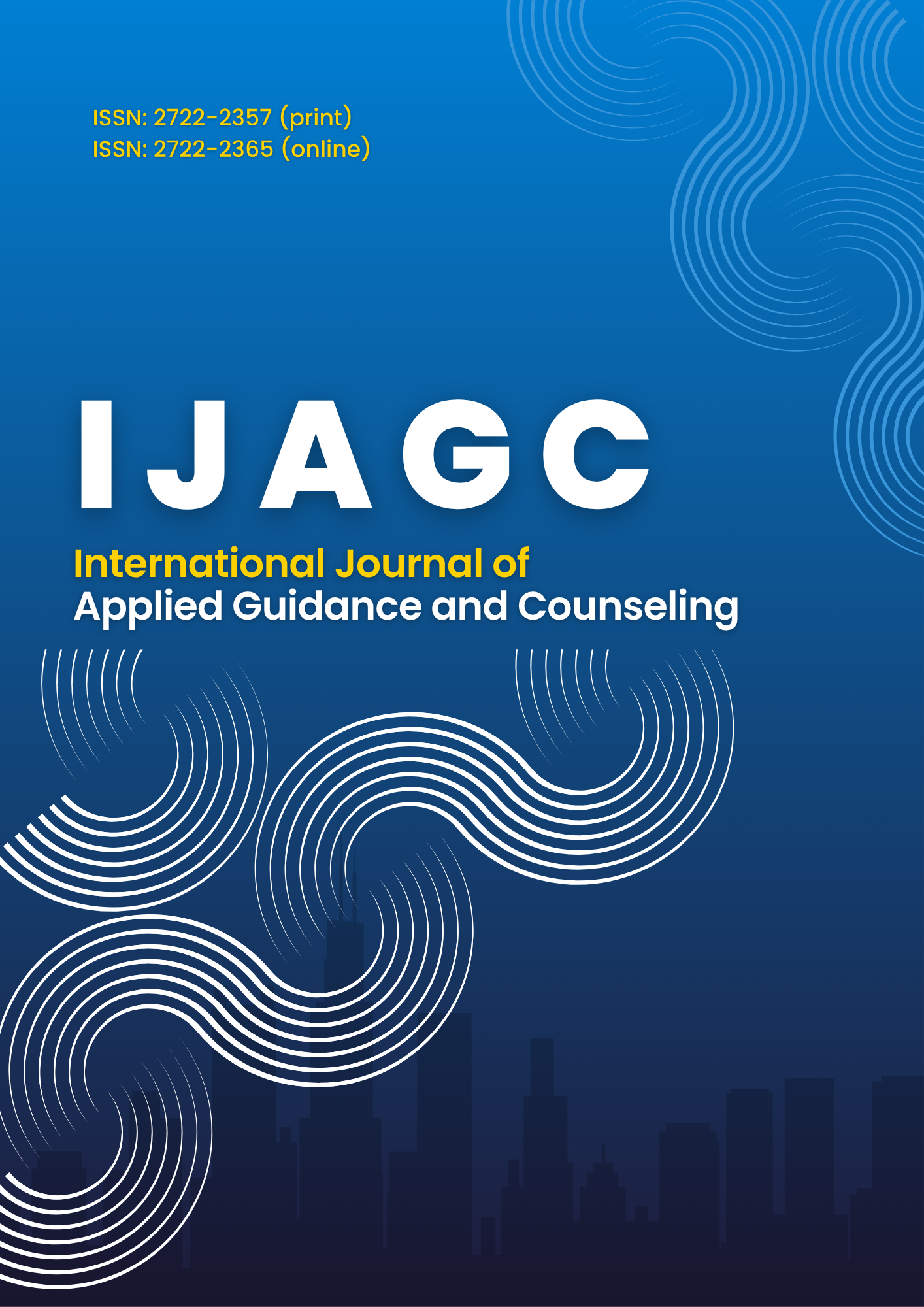Role Playing with Behavioristic Approach on Interpersonal Communication Skills of Students in Senior High School
DOI:
https://doi.org/10.26486/ijagc.v4i2.3371Keywords:
Role Playing, Behavioristic Approach, Interpersonal Communication SkillsAbstract
Interpersonal communication skills is communication that is carried out between two or more people, both verbal and nonverbal to students. In fact, at school there are still many students who have less interpersonal communication skills in interactions such as frequent misunderstandings in communicating at school. Seeing this phenomenon, efforts are needed to improve students' interpersonal communication skills. The purpose of this study is to increase students' self-confidence and to determine the effectiveness of role playing with a behavioristic approach to students' interpersonal communication skills. The method used in this research is quasi-experimental research with Nonequivalent Control Groups Design. The results show that t count = 8.616 > t table = 1.999. So, the conclusion Ho is rejected and Ha is accepted, which means the use of role playing with a behavioristic approach can improve students' interpersonal communication skills.
References
Billings, R. L. (2012). Stage management: Interpersonal communication skills for the stage manager. Texas A&M University-Commerce.
Bowman, S. L. (2010). The functions of role-playing games: How participants create community, solve problems and explore identity. USA: McFarland.
Corey, G. (2015). Theory and practice of counseling and psychotherapy. Nelson Education.
Creswell, J. C. (2012). Education Research, Planning, Conducting and Evaluating Quantitative and Qualitative Research. 4th edition. Boston: Pearson.
Erford, B. T. (2015). 40 Techniques Every Counselor Should Know Second Edition. New Jersey: Pearson Education, Inc.
Joyce, B., Weil, M., & Calhoun, E. (2011). Models of Teaching (Model-Model Pembelajaran). Yogyakarta: Pustaka Pelajar.
Manoela, P., & Cecilia, C. L. (2013). Interpersonal Communication Skills, At The Organizational Level, Relevant In The Context Of Globalization. Romanian Economic and Business Review, 410.
Russell, C., & Shepherd, J. (2010). Online roleâ€play environments for higher education. British Journal of Educational Technology, 41(6), 992-1002.
Sanyata, S. (2012). Teori dan aplikasi pendekatan behavioristik dalam konseling. Jurnal Paradigma, (14), 1-11.
Sugiyono. (2010). Metode Penelitian Kuantitatif, Kualitatif & RND. Bandung: Alfabeta.
Van Ment, Morry. (1983). The Effective Use of Role Play. Handbook for Teachers and Trainers. London: British Library
Downloads
Published
Issue
Section
License
Copyright (c) 2023 Yulia Novita Sari

This work is licensed under a Creative Commons Attribution-ShareAlike 4.0 International License.
Authors who publish with IJAGC: International Journal of Applied Guidance and Counseling agree to the following terms:
Authors retain copyright and grant the Insight right of first publication with the work simultaneously licensed under a Creative Commons Attribution License (CC BY-SA 4.0) that allows others to share (copy and redistribute the material in any medium or format) and adapt (remix, transform, and build upon the material) the work for any purpose, even commercially with an acknowledgement of the work's authorship and initial publication in Insight. Authors are able to enter into separate, additional contractual arrangements for the non-exclusive distribution of the journal's published version of the work (e.g., post it to an institutional repository or publish it in a book), with an acknowledgement of its initial publication in Insight.
Authors are permitted and encouraged to post their work online (e.g., in institutional repositories or on their website) prior to and during the submission process, as it can lead to productive exchanges, as well as earlier and greater citation of published work (See The Effect of Open Access).












